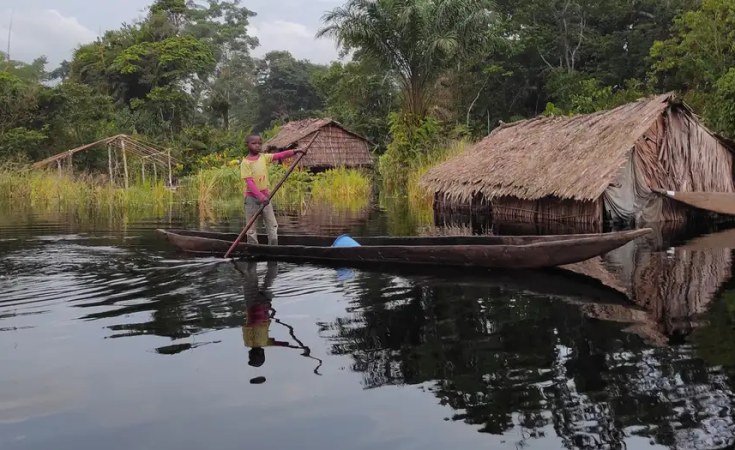Rwanda will join the rest of the world to observe World Neglected Tropical Diseases Day on Tuesday, January 30 at DP World Kigali, Masaka sector in Kicukiro District.
The objective of World Neglected Tropical Diseases Day is to reflect on the causes of NTDs, celebrate those who are engaged in tackling the burden and the accomplishments of the global NTD community, and gather more support towards their control, elimination, and eradication.
According to information from the Ministry of Health (MoH), eight of the 20 diseases categorised by the World Health Organization (WHO) as neglected tropical diseases (NTDs) affect thousands of people in Rwanda every year.
ALSO READ: Gisagara: RBC, partners kick off NTDs prevention campaign
In Rwanda, intestinal worms and bilharzia/ schistosomiasis are among the common NTDs. The prevalence of intestinal worms is 41 per cent overall and 48 per cent among adults. Additionally, around 1,013 cells in Rwanda are endemic for bilharzia, according to Nathan Hitiyaremye, the NTDs-Water, Sanitation, and Hygiene (WASH) Coordination Officer at Rwanda Biomedical Center (RBC).
Hitiyaremye said intestinal worms' prevalence was 65 per cent among school-aged children in 2008 when RBC initiated a deworming programme.
Other common NTDs in Rwanda are podoconiosis (about 6,000 cases annually), scabies (100,000 cases), taeniasis (3,000 cases), cysticercosis, rabies from dog bites (1,000 cases), and snakebites envenomation (1,500 cases), MoH states.
ALSO READ: From hygiene education to snakebite awareness: Rwanda's fight against NTDs
"Among main activities, we initiated deworming in children in 2008, and we included adults because prevalence was higher among them. We are now developing the WASH-NTD coordination roadmap which will embrace all activities related to WASH; all WASH partners will contribute to its implementation in partnership with district authorities because hygiene and sanitation are everyone's concern in the control and elimination of NTDs in Rwanda," he said.
Hitiyaremye explained that WASH (Water, Sanitation, and Hygiene) is the silent weapon against NTDs, in particular, intestinal worms, stressing that local government authorities, religious leaders, and other WASH partners, health institutions, and general society, ought to act together and fast to meet the WHO Roadmap 2030 targets.
The predominant global targets for 2030 include achieving 90 per cent fewer people requiring interventions against NTDs, 75 per cent fewer NTD-related disability-adjusted life years (DALYs), 100 countries achieving elimination of at least one NTD and eradication of two NTDs - dracunculiasis and yaws.
Role of youth in NTDs eradication
Obed Imbahafi, an NTDs youth activist, appreciates the efforts made by the Government of Rwanda, particularly RBC, in raising awareness about NTDs.
"Their campaigns across various regions, utilisation of influencers on social media platforms like X, messaging in local languages, and implementing mass drug administration are commendable," Imbahafi said.
However, Imbahafi explained that there is still a need for greater integration of youth initiatives into the national agenda. While foreign bodies recognise our efforts, local inclusion remains challenging, despite the youth being a significant portion of those affected.
He urged encouragement of competitions among creative youth, noting that using different media channels can foster a sense of belonging and inclusion in the fight against NTDs.
This may involve organising an awareness creation competition, providing a platform for youth to express their understanding of NTDs, and proposing solutions through various creative outlets such as poems, songs, videos, art, and writings. This initiative can help to unleash the unlimited creative potential of the youth and actively engage them in the fight against these diseases.
Moreover, there is a crucial need to focus on translating information into Kinyarwanda, making it accessible to everyone, and extending awareness programmes to the grassroots level, including village (Umudugudu) which will ensure a more comprehensive reach and impact, the activist noted.
Since 2008, over 65 million treatments against intestinal worms and schistosomiasis have been delivered to children aged 1-15 through bi-annual deworming for intestinal worms, and once a year for schistosomiasis. Deworming coupled with the progress made in water sanitation, hygiene, awareness, and intestinal worm prevalence, decreased to less than 20 per cent from 66 per cent in 2008 to 41 per cent in 2020 among surveyed school-aged children, as per the Ministry of Health.


